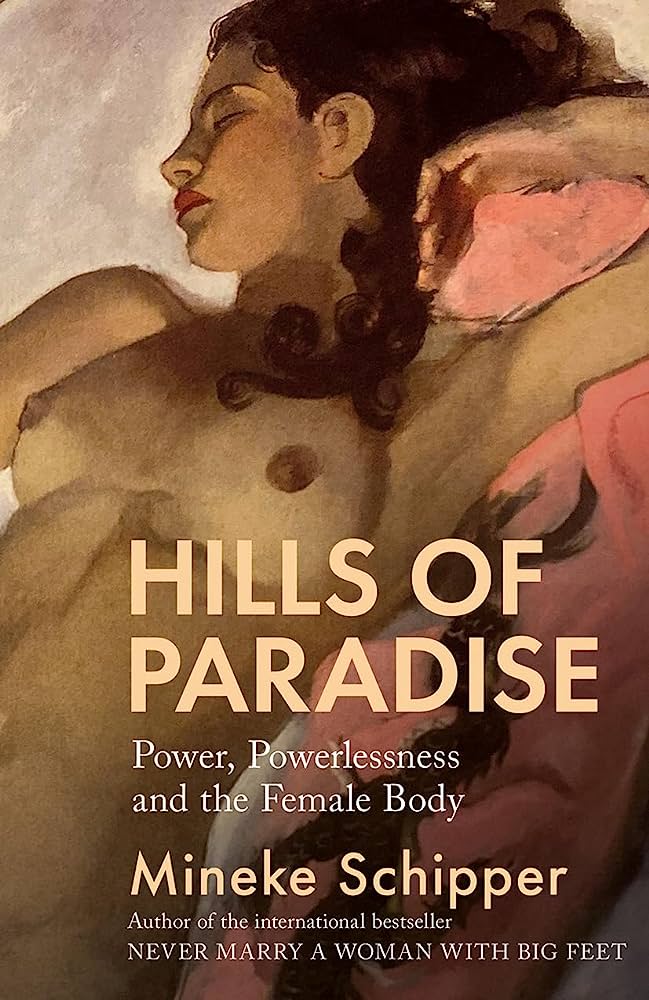Power, Myth and the Female Body
Mineke Schipper

‘The Shrinking Goddess by Mineke Schipper is currently expanding my thinking. It’s a cultural and anthropological study of misogyny via global artworks, texts, myths and proverbs. Only by seeing what has been done can we undo it.’ Joelle Taylor, TS Eliot Prize winner, New Statesman
‘Holders of power, great and small, have managed and controlled female sexuality… The need to nullify bodies with breasts, a vulva and a womb… and to act as if everything and anything sexual was [men’s] domain is remarkably widespread. It can be found in countless handed-down images, stories, symbols, rituals that concentrate on the body parts that distinguish women from men.’
The female body has been admired, used and abused throughout history. Despite the symbiotic relationship between the sexes, men have had more power than women, and the female anatomy seems to lie at the root of this inequality. Mineke Schipper’s riveting cultural world history examines how men everywhere have had mixed feelings about the female body. Delight has gone hand in hand with insecurity, and power with feelings of impotence. Mythology is permeated with threats and fear: vaginas with teeth, snakes in women’s abdomens, witches with multiple breasts. Male fear almost always turns into aggression, which is why violence against women – and the suppression of their own stories about themselves – is perennial.
Schipper travels all over the world and through antiquity, analysing stories about sexuality, pregnancy and birth – stories of immaculate conception, erotic lactation, virginal bleeding, contraception, chastity and instruments of torture designed for use on women. She explores male anxieties such as the dread of hymens and menstrual blood, and the fear of dependency on mothers and wives.
Drawing from ancient Mesopotamia and modern Turkey; medieval European art and contemporary fashion; Indian, Greek and Japanese myths; and tales from the Igbo of Nigeria, the Vikings, the Xhosa, and the Ming Dynasty, The Shrinking Goddess is an extraordinary work. This deeply researched, powerful and sometimes hilarious account offers not only clear insights into the past, but also into the way women and men still interact with each other today.
‘Illuminating, informing and underpinned by extensive research, Schipper’s global approach is the means to a journey. The Shrinking Goddess will lead you to reconsider the female form in all its splendid glory. Ground-breaking.’ Jasmine Elmer, classicist, TV presenter
Also published as Hills of Paradise

‘Schipper’s book is a profound contribution to understanding the origins of inequality between men and women, which lie, first of all, in the physical sexual differences they exhibit. What cultural meaning has been given to menstruation, the vulva, the clitoris, breasts, breastmilk, the womb? As we meet the historical and the cross-regional male gaze on the female body in art, proverbs, myths, teachings, “science,” and scripture, we see as never before the desperate and persistent male urge to subordinate the female body that is so unlike his own and yet has the power to produce life where his cannot. The story of how men through the ages have denied the bodily power of women, at the same time seeking to control, dominate, and even usurp it, is enough to make one weep for the whole human family due to the sheer misery this horrible quest has engendered. Schipper asks us to reconsider and seek a better path, one where sexual difference is not made an excuse for hierarchy, but rather a justification of the absolute need for diarchy.’ Valerie Hudson, University Distinguished Professor, Professor and George H.W. Bush Chair; Director, Program on Women, Peace, and Security, Department of International Affairs, The Bush School of Government and Public Service, Texas A&M University
‘The book offers a wealth of refutations of the idea that women are by nature the weaker sex: women were in all sorts of ways a threat to the power of men, and should therefore be systematically tamed.’ Het Parool
‘The unrelenting chain of crimes against women has pervaded all corners of the world. Hills of Paradise stands eye-to-eye with the patriarchy and misogyny that lie at the roots of such violence. Hills of Paradise wants us to do two things: remember and resist. If this attempt by a woman in her early 20s to read this book could be summarised in one sentence, it’s this: a woman with a voice, exercising her power and agency over her body and herself in today’s times is a threat to patriarchy. Let that sink in.’ The Indian Express
‘A premium academic work that can help push women towards affirmative action. Easy to read, and minus the academic jargon that usually features such work, Dr Schipper’s supreme narrative style completely draws the reader in, aptly alternating between thorough analysis, literary theory and mythology from around the world.’ Feminism in India
Sales
- Prometheus NL
- Klett-Cotta Germany
- Sefsafa Arabic
- Durieux Croatia
- Guangxi Normal University Press China
- Speaking Tiger India (English, Indian subcontinent)
- Bookcraft Nigeria (English, Africa)
- Westbourne Press (English, rest of world)
Material: Dutch PDF (293p), Full English translation and translated interview and press